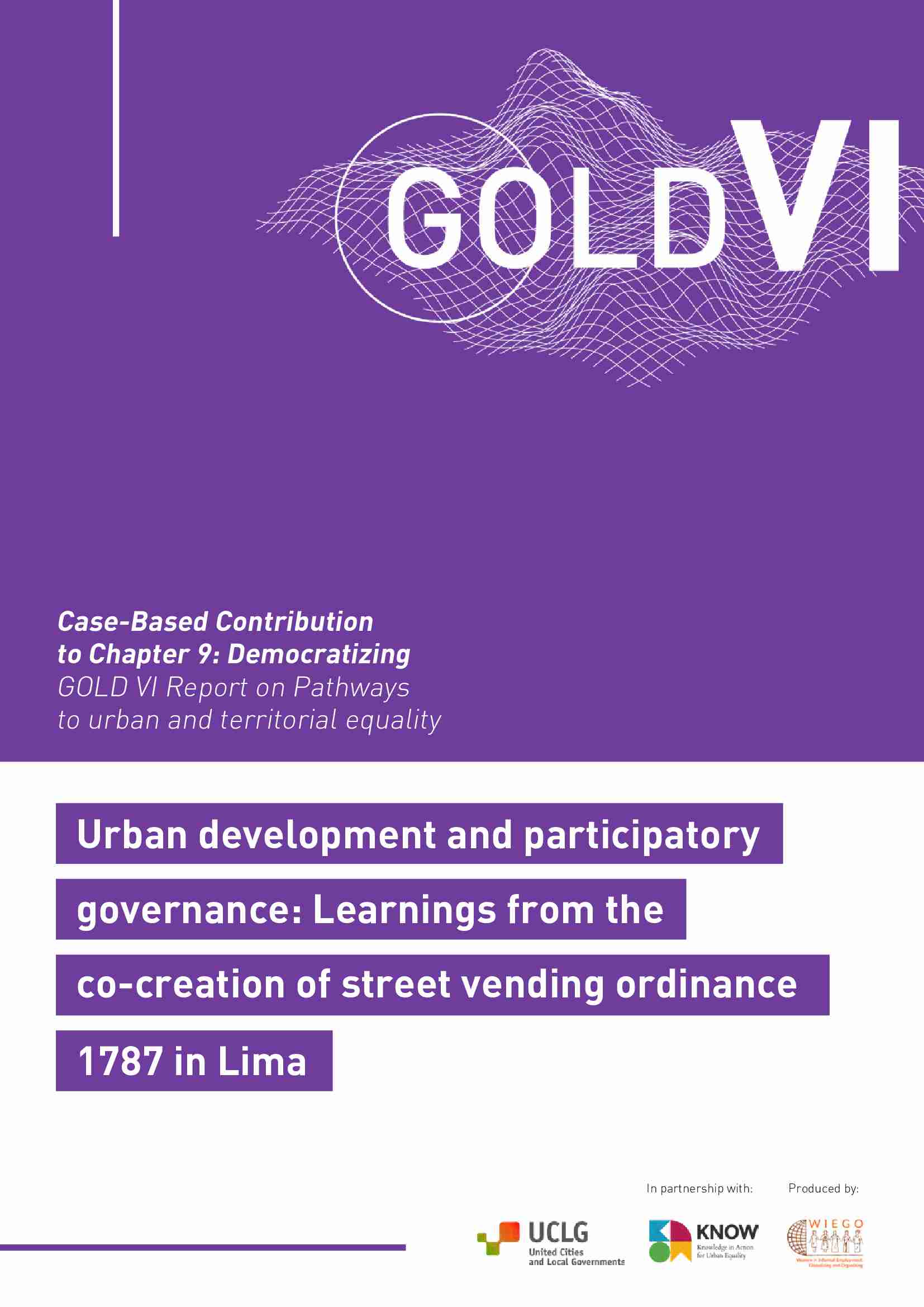Urban development and participatory governance: Learnings from the co-creation of street vending ordinance 1787 in Lima
Social dialogue between street vendor organizations and municipal governments can lead to inclusive regulatory frameworks, which are essential for developing more appropriate solutions for managing public spaces as workplaces. Moreover, such dialogue can foster greater urban equality, as multiple stakeholders collaborate to address and solve shared challenges.
This case study examines the channels of social dialogue between government authorities and street vendor organizations in Lima, Peru, during the 2010s. It focuses on the process that led to the adoption of Ordinance 1787 on street vending, highlighting how social dialogue can serve as a pathway to uphold and reconcile informal workers’ right to work in public spaces with municipal governments’ urban development objectives.
View list of all: Project Reports

